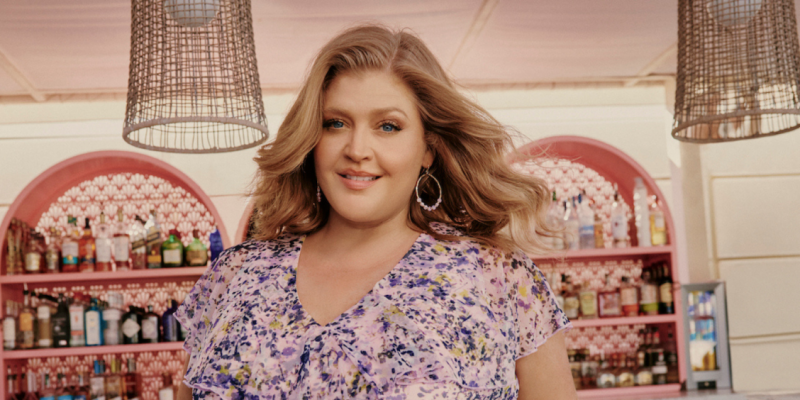VIP
The Rosenzweig Report’s Call to Action for Gender Equity: “Much More Can Be Done in Corporate Canada”
Over the past year, women around the world have faced unique challenges in their pursuit of gender equity.
by : Contributor Content- May 10th, 2023

Featured story by: Tom White
Even though progress has been made in recent years, women still face barriers that hinder their advancement. But despite these challenges, they continue to fight to regain their narratives as well as push for greater representation and equality in the political and corporate worlds. This fight is taking place across all industries, whether in fashion and beauty or tech and aerospace engineering.
As we navigate these challenging times, it’s important to recognize that progress has been made. While more work needs to be done when it comes to empowering women everywhere, corporate Canada has made strides toward equity. For the first time, the Rosenzweig Report found that women account for more than 10 percent of the top corporate positions.
Despite this percentage still being far from what true gender equity looks like, it represents an important milestone in the 18 years that the Rosenzweig Report has been published. Each year, it tracks the representation of women in leadership positions across Canadian companies. The report is widely seen as an important tool for policy-makers, executives and investors in Canada and around the world. As such, important people monitor and contribute to the report each year.

“I know how critical it is that women be empowered to engage more fully in the economic life of our country, especially in leadership roles,” says Mary Ng, Canada’s Minister of International Trade, Export Promotion, Small Business and Economic Development. “The Rosenzweig Report is an accurate and useful means of charting the advancement of women at corporate Canada’s highest levels and serves as a reminder that there is more [work] to be done.”
It is true that there is much more work to be done. Despite 10.9 percent of all top jobs in corporate Canada being held by women, this still translates to 466 out of 523 executives being men. The report estimates that “we are looking at decades” before women achieve a representation of 30 percent in these positions, which can be quite disheartening.
“Once again this year, Canada has a record number of women at the head of our businesses,” says Justin Trudeau, Prime Minister of Canada. “While that’s good news, the pace of change is still too slow, and that’s especially true when it comes to diverse women. There is more work to do…. When women are truly empowered to lead, we all succeed.”
The Rosenzweig Report was envisioned by Jay Rosenzweig, a McGill University philosophy and law graduate who has made a name for himself as a social impact entrepreneur and humanitarian. His work has been recognized by people all over the world, but despite this, he remains humble and focused on his philanthropic missions. One of these missions is to challenge the status quo in the corporate world by giving women and BIPOC candidates meaningful opportunities.
“For 20 years now, Jay Rosenzweig has been breaking down barriers when it comes to gender equality and diversity in business,” said NFT artist and social media influencer extraordinaire, Parin Heidari. “I have great respect for his work and his achievements.”
Strong and passionate women all over the world have made it possible for billions of people to be hopeful about the future while allies like Rosenzweig show them that they are not alone in this fight. Change might not be coming as fast as we all would like, but it is coming. It is now a matter of helping it come faster. As Rosenzweig himself put it, “When it comes to gender equality, we can do better and we must do more to spur faster changes.”
Other prominent Canadians have also taken note of this issue. In the words of the Right Honourable Michaëlle Jean, the 27th Governor General, Commander-in-Chief of Canada: “For the past 18 years, the Rosenzweig Report has scrutinized how and whether women are progressing in business.” She went on to say: “Similarly, the National Black Canadians Summit, organized by the Michaëlle Jean Foundation, has looked at the situation of Black entrepreneurs with a view to eradicating exclusion and systemic racial discrimination in our country. An overwhelming picture [has emerged]. Black-owned businesses start with three times less overall capital than their white counterparts. One study found that loans with the picture of a Black person in [their] profile were 25 to 35 percent less likely to receive funding than their white counterparts, and they were imposed higher interest rates. As a result, Black entrepreneurs apply for loans less often because they expect to be denied. As [many] as 76 percent of all Black entrepreneurs say that their race makes it harder [for them] to succeed.”
“[And] what about Black women entrepreneurs?” Jean poses. “A landmark study of 700 Black women entrepreneurs across Canada highlighted the compounded difficulties they face. Over 78 percent of Black-woman-owned businesses operate online, and [of those operating from their] home, another 20 percent rent their space. [Fewer] than 1 percent own their building. Some 93 percent have annual revenues of less than $100,000.”
Enter the Rosenzweig Report. “With this edition of the Rosenzweig Report, we salute the courageous resistance of Iranian women, their creative use of artful forms of communication and their appeal to our common humanity to advance gender justice,” says Jean. “We, women from around the world, know how hard we have to struggle,” she continues. “Still, unfazed, with our eyes on the prize, we shall overcome through creativity, courage, quality of character and collective action. With men of intelligence and conscience at our sides, we dare because we care. To empower women is to empower society as a whole. To include is to succeed. Everybody wins.”
KO Media newsroom and editorial staff were not involved in the creation of this content.
Newsletter
Join our mailing list for the latest and biggest in fashion trends, beauty, culture and celebrity.
More from VIP
Read Next

Beauty
Dyson Just Launched Its Most Intelligent Hair Dryer Yet
Get ready to upgrade your blowout game.
by : Lauren Knowles- Apr 25th, 2024

Fashion
Meredith Shaw Created a Plus-Size Summer Dress Collection That "Feels Like Candy"
The morning show host joined forces with PENN. to create a curated collection for sizes 14-32.
by : Allie Turner- Apr 25th, 2024

Beauty
Summer Prep: How to Feel Confident in Your Swimsuit
New Size-Inclusive Swimwear: Gillette Venus partners with The Saltwater Collective to Launch a Collection for Any Body
by : ELLE Canada- Apr 24th, 2024




